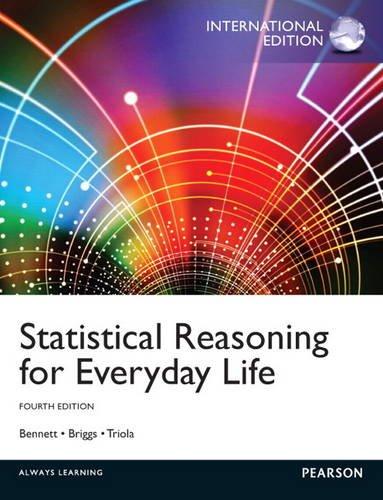State whether the prediction (or implied prediction) should be trusted in each of the following cases, and
Question:
State whether the prediction (or implied prediction) should be trusted in each of the following cases, and explain why or why not.
a. You’ve found a best-fit line for a correlation between the number of hours per day that people exercise and the number of calories they consume each day. You’ve used this correlation to predict that a person who exercises 18 hours per day would consume 15,000 calories per day.
b. There is a well-known but weak correlation between SAT scores and college grades. You use this correlation to predict the college grades of your best friend from her SAT scores.
c. Historical data have shown a strong negative correlation between national birth rates and affluence. That is, countries with greater affluence tend to have lower birth rates. These data predict a high birth rate in Russia.
d. A study in China has discovered correlations that are useful in designing museum exhibits that Chinese children enjoy. A curator suggests using this information to design a new museum exhibit for Atlanta-area school children.
e. Scientific studies have shown a very strong correlation between children’s ingesting of lead and mental retardation. Based on this correlation, paints containing lead were banned.
f. Based on a large data set, you’ve made a scatterplot for salsa consumption (per person)
versus years of education. The diagram shows no significant correlation, but you’ve drawn a best-fit line anyway. The line predicts that someone who consumes a pint of salsa per week has at least 13 years of education.
Step by Step Answer:

Statistical Reasoning For Everyday Life
ISBN: 9780321904645
4th International Edition
Authors: Jeffrey Bennett, William L. Briggs, Mario F. Triola





